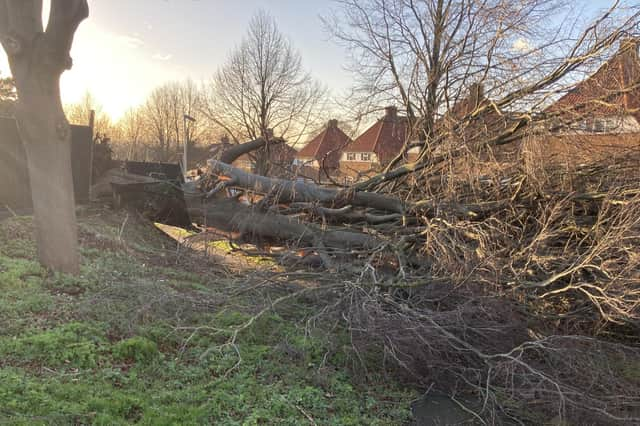Ukraine-Russia crisis: War would pose a serious threat to fight against climate change – Scotsman comment


The world has left it late to stop global warming going above 1.5 degrees Celsius, the point beyond which scientists say things could start to get particularly dangerous by, for example, locking in long-term rises in sea level and potentially triggering natural tipping points and feedback systems that amplify the process.
One such feedback system is the increased severity of the weather. The accumulation of vast amounts of extra energy in the atmosphere means storms are getting increasingly more destructive. Warm air also holds more moisture, which means both that droughts get drier and rains heavier.
Advertisement
Hide AdAdvertisement
Hide AdPlanting trees – natural carbon extraction engines – is a mainstay of the fight against climate change. However, if they are repeatedly blown down by gale-force winds or burned by wildfires, the effectiveness of that strategy will be reduced.
Major storms, such as Eunice, also cause damage to vital infrastructure that then needs to be rebuilt, incurring a cost in terms of carbon emissions from construction.
However, while the threat posed by Nature turning increasingly against us is one that climate scientists can try to calculate, human factors are much less predictable.
If Vladimir Putin invades Ukraine, the West has promised the Nord Stream 2 gas pipeline from Russia to Germany will not go ahead. That has already led to a search for alternative supplies and created a new pressure to open up more oil and gas fields.
Other potential conflicts, particularly any involving China, would likely lead to similar practical problems for efforts to decarbonise the global economy, while further hampering the ability of nations to work together. And, self-evidently, a country fighting a war is unlikely to pay much attention to its carbon emissions.
The weakness of that pulse means the margins for such ‘errors’ are fine. Should Putin decide to play soldier with real people’s lives, the liberal democracies of the world, while standing together to defend freedom, may also need to shoulder greater responsibility for cutting emissions than they currently expect if the patient is to survive.
A message from the Editor:
Thank you for reading this article. We're more reliant on your support than ever as the shift in consumer habits brought about by coronavirus impacts our advertisers.
If you haven't already, please consider supporting our trusted, fact-checked journalism by taking out a digital subscription.
Comments
Want to join the conversation? Please or to comment on this article.
